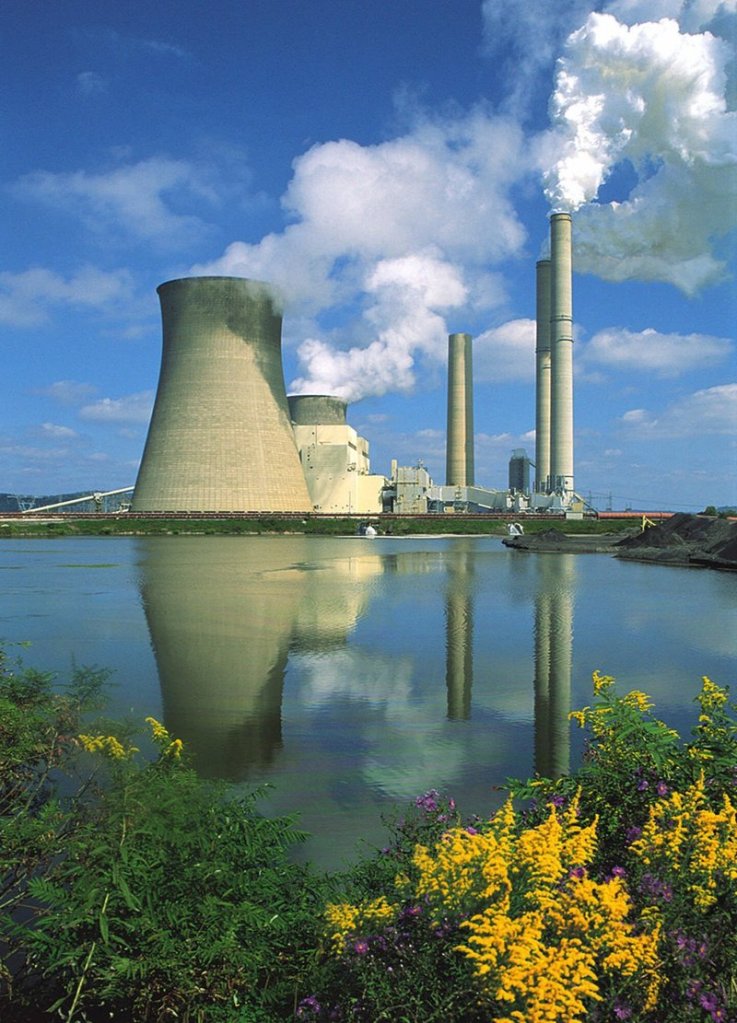WASHINGTON — The Obama administration forged ahead Tuesday with the first-ever limits on heat-trapping pollution from new power plants, ignoring protests from industry and Republicans who have said the regulation will raise electricity prices and kill off coal, the dominant U.S. energy source.
But the proposal also fell short of environmentalists’ hopes because it goes easier than it could have on coal-fired power, one of the largest sources of the gases blamed for global warming.
“The standard will check the previously uncontrolled amount (of carbon pollution) that power plants … release into our atmosphere,” Lisa Jackson, head of the Environmental Protection Agency, said in a conference call with reporters Tuesday. But “it also creates a path forward for future facilities to use technology that burns coal, while releasing less carbon pollution.”
A coalition of groups in Maine — the Natural Resources Council of Maine, Sierra Club Maine, Maine Interfaith Power and Light and Maine Physicians for Social Responsibility — praised the new standard, and called on Maine members of Congress to support it.
“Every year, power plants dump more than two billion tons of dangerous carbon pollution and other pollutants into the air. The standard announced today will establish the first national limits on carbon pollution from new power plants and help protect people, kids, wildlife and our environment from climate change and air pollution,” Lisa Pohlmann, executive director of the Natural Resources Council of Maine, said in a statement.
Older coal-fired power plants have already been shutting down across the country, thanks to low natural gas prices, demand from China driving up coal’s price and weaker demand for electricity.
Regulations from the EPA to control pollution blowing downwind and toxic emissions from power plants have also helped push some plants into retirement, causing Republicans in Congress and on the campaign trail to claim the agency will cause blackouts. Numerous studies and an AP survey of power plant operators have shown that is not the case.
But on Tuesday, GOP leaders once again accused the administration of clamping down on cheap, home-grown sources of energy and said the regulation raised questions about the sincerity of President Obama’s pledge for an “all-of-the-above” energy policy.
“This rule is part of the Obama administration’s aggressive plan to change America’s energy portfolio and eliminate coal as a source of affordable, reliable electricity generation,” said Rep. Fred Upton, R-Mich., who as chairman of the House Energy and Commerce Committee has led the charge against environmental regulations. “EPA continues to overstep its authority and ram through a series of overreaching regulations.”
The rule announced Tuesday could either derail or jump-start plans for 15 new coal-fired power plants in 10 states, depending on when they start construction. Those that break ground in the next year would be exempt from the new limit. Those that start construction later will have to eventually comply with the rule.
Existing power plants, even if they make changes that increase emissions, would not be covered at all. And new ones would have years to meet the standard and could average their emissions over three decades in order to meet the threshold.
But eventually, all coal-fired power plants would need to install equipment to capture half of their carbon pollution. While not commercially available now, the EPA projects that by 2030, no new coal-fired power plant will be built without carbon capture and storage.
By contrast, a new natural gas-fired power plant would meet the new standard without installing additional controls.
“There are areas where they could have made it a lot worse,” said Scott Segal, director of the Electric Reliability Coordinating Council, a coalition of power companies. Still, “the numerical limit allows progress for natural gas and places compliance out of reach for coal-fired plants” not planning to capture and sequester carbon dioxide, the chief greenhouse gas.
Steve Miller, CEO and President of the American Coalition for Clean Coal Electricity, a group of coal-burning electricity producers, took a more dismal view of the proposal.
“The latest rule will make it impossible to build any new coal-fueled power plants and could cause the premature closure of many more coal-fueled power plants operating today,” Miller said.
Send questions/comments to the editors.



Success. Please wait for the page to reload. If the page does not reload within 5 seconds, please refresh the page.
Enter your email and password to access comments.
Hi, to comment on stories you must . This profile is in addition to your subscription and website login.
Already have a commenting profile? .
Invalid username/password.
Please check your email to confirm and complete your registration.
Only subscribers are eligible to post comments. Please subscribe or login first for digital access. Here’s why.
Use the form below to reset your password. When you've submitted your account email, we will send an email with a reset code.